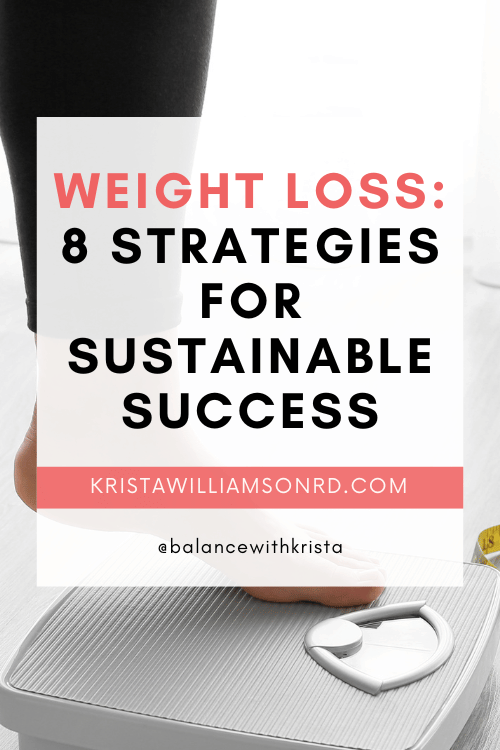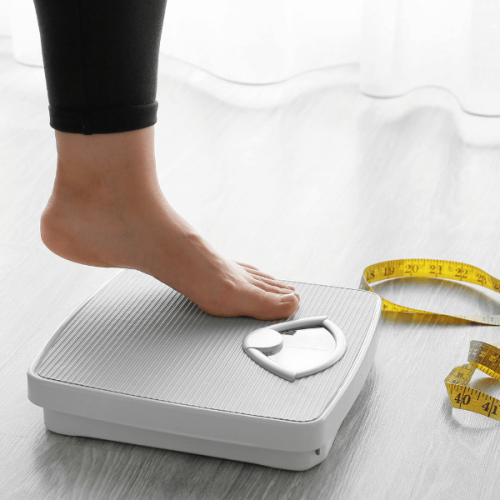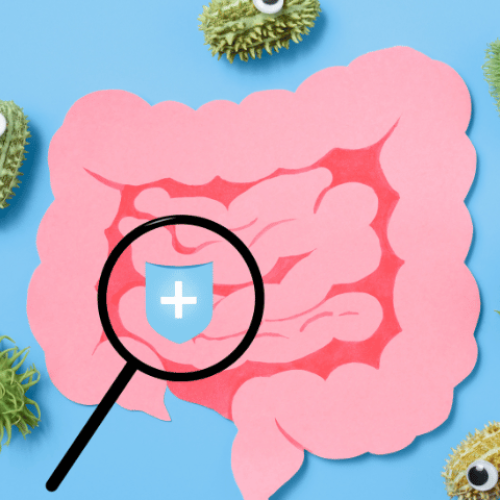My number one weight loss tip has always been: whatever you do to lose weight, you have to be able to continue to keep the weight off. It’s the very reason I do not promote fad diets, fat-loss supplements or other quick fixes. Short-term solutions provide short-term results, and vice versa.
It’s also why I caution people who are not managing chronic conditions like diabetes or obesity about using Ozempic, Wegovy, or other GLP-1 analogues for weight loss – because it becomes a forever thing (if you’re okay with that, then by all means).
As a Registered Dietitian, I believe in promoting sustainable strategies for weight management that emphasize long-term success and overall well-being. Let’s dive into some of these strategies!
In this post, we’ll cover:
- The basics of weight management
- 8 strategies for sustainable success
- My opinion and programs
Understanding the basics of weight management
Weight management is fundamentally about balancing the energy you consume with the energy you expend. When you consume more calories than your body needs, the excess is stored as fat, leading to weight gain. Conversely, consuming fewer calories than your body needs results in weight loss. However, the quality of those calories and how you manage your diet and lifestyle play crucial roles in this process.
When you are aiming to achieve a calorie deficit for weight loss, the foods you choose become even more important. You are limiting your overall calories, but your body still needs a certain amount of macronutrients (carbohydrates, protein and fat) and micronutrients (vitamins and minerals) each day. For example, if you just cut your calories without eating enough protein, you will lose more lean body mass, which will cause a decrease in your metabolism, causing your body to store fat more easily and then cause your “diet” to stop working for you.
When looking for a sustainable approach to weight management, there is a lot more to factor in than just calories. Other aspects such as nourishing your body well, your mental health and overall well-being, health history, family health history, sleep pattern, daily activities, schedule, home environment, support systems, finances and more – all play a role in the longevity of your plan. I know I’m biased, but when weight loss is a goal, doing so in a healthy, realistic and sustainable way is so important to be able to lose the weight and keep the weight off. If you need help, it just so happens I specialize in this area! You can work with me by clicking here.

Strategies for sustainable success
Focus on Nutrient Dense Foods
Instead of fixating on just calories, prioritize the quality of the foods you eat. Nutrient-dense foods provide essential satiating nutrients like protein, fibre and fats as well as vitamins, minerals, and other nutrients. Restricting your calorie intake without prioritizing nutrient-dense foods will leave you feeling hungry all the time, causing you to snack more or result in binge eating.
Examples of nutrient-dense foods:
- Fruits and Vegetables: they are packed with vitamins, minerals, fibre, hydration and antioxidants.
- Whole Grains: such as oats, quinoa, whole wheat, barley, amaranth and farro which provide fibre and sustained energy.
- Lean Proteins: like fish, poultry, beans, lentils, and tofu, which support muscle maintenance and repair.
- Healthy Fats: found in avocados, nuts, seeds, and oils, which are important for brain health and satiety.
Establish Realistic Goals
For most people, healthy weight loss does not happen in a straight line. Setting realistic and achievable goals is critical for sustainable weight management. As human beings, we tend to loathe “the process”. We want to jump straight to the end result by yesterday. But in my opinion, what’s the beauty in that? All that would do is allow precious time to pass by. Try to change your mindset here, instead of aiming for drastic weight loss fast, set your sights on a healthy weight loss journey. Celebrate small victories along the way!

Move Your Body in a Way That Fits YOU
Physical activity is a cornerstone of physical health, mental health and overall well-being. The guidelines suggest aiming for at least 150 minutes of moderate-intensity exercise each week, combined with strength training exercises twice a week.
If that sounds like too big of a mountain to climb for you, I encourage you to start with 30 minutes per week. Split it up into two 15-minute sessions of movement in your week and you can grow from there. With movement, some is better than none.
Activities can include:
- Cardiovascular: such as walking, dancing, running, cycling, or swimming.
- Strength Training: using weights, resistance bands, or body-weight exercises like push-ups and squats.
- Flexibility and Balance: through activities like yoga or pilates.
There are also research-backed benefits to breaking up your sedentary/sitting time. So if movement sessions aren’t in the cards for you right now, try breaking up your sitting time while working or watching TV.
The best kind of movement is the kind that you’ll do.
Practice Mindful Eating
No one’s shocked: we live in a fast-paced society!
Slowing down is something that takes practice but it can be so impactful to your overall well-being, mental health and spiritual health.
Mindful eating involves paying full attention to the experience of eating and drinking, both inside and outside the body. It can help you recognize hunger and satiety cues, reduce overeating, and foster a healthier relationship with food.
Here are some tips for practicing mindful eating:
- Eat Slowly: take your time to chew and savour each bite. This can improve your digestion and help prevent overeating.
- Avoid Distractions: turn off the TV and put away your phone while eating. Don’t work or drive and eat – aim to just eat whenever possible.
- Listen to Your Body: honour your body by eating when you are hungry and stopping when you feel full. Honouring your body’s cues helps build body trust and is a form of self-care.
- Appreciate Your Food: pause and take a moment to appreciate the flavours, textures, colours and aromas of your meal.

Get Adequate Sleep
Sleep is SO often overlooked but plays a significant role in weight management. Lack of sleep can disrupt hormones that regulate hunger and appetite, leading to increased cravings and overeating.
Aim for 7-9 hours of quality sleep each night by:
- Establishing a Routine: Go to bed and wake up at the same time every day.
- Creating a Sleep-Friendly Environment: Keep your bedroom cool, dark, and quiet.
- Limiting Screen Time: Avoid screens at least an hour before bedtime.
Hydrate Well
Drinking enough water is essential for overall health and can aid in weight management. Everyone’s needs are different, but for most people, at least 8 cups is a good rule of thumb. You may need more or less depending on your health history, physical activity or the weather.
When the goal is a calorie deficit, I encourage my clients to choose calorie-free beverages as often as possible.
Avoid Fad Diets

Fad diets promise quick weight loss but are often unsustainable and can be harmful to your health. They typically involve extreme restrictions or elimination of entire food groups, leading to nutritional deficiencies and a yo-yo effect on your weight. Remember, whatever you do to lose weight you have to be able to continue to keep the weight off – and your body is your home forever. So if avoiding your favourite foods or skipping social events is not something you want to do forever – don’t! Instead, I recommend a balanced diet to nourish your body well without having to eliminate your favourite foods, compromise your mental health or give up your social life!
Shift Your Focus
When your weight (your relationship with gravity) is the only way you measure “success”, you will not always be successful – remember, weight loss doesn’t happen in a straight line. Unfortunately, the scale can fluctuate for a variety of reasons like carbohydrate intake, sodium intake, bowel routine, GI function, hormones, etc. You can utilize the scale as a tool, but step back and look at the trends over time (months), without allowing the short-term ups and downs (days, weeks) to stop you from progressing forward in your journey.
Shift your focus.
Instead of putting all your stock into the weight scale, put more stock into your health and habits. You can celebrate things like eating more fruits and vegetables, drinking more water, eating less take-out, prioritizing protein, stressing about food less, giving yourself grace, getting quality sleep, improving your GI symptoms, etc. as they’re all improving your health, too!
Maintaining a positive mindset is crucial. Be patient with yourself and recognize that setbacks are part of the journey.

My opinion
Your body and your health are with you forever.
Fad diets are a temporary solution that provide temporary results to a long-term problem.
We need a sustainable plan to achieve sustainable results.
For a plan to be sustainable, it must be:
- Effective (improving your health and well-being)
- Realistic (fits you and your real life)
- Enjoyable (you need to like it!)
There is NO one size fits all diet that will work for everyone. Every person is unique and has unique needs. That’s the fun of my job! 🙂 I work to personalize advice for each client based on their taste preferences, likes, dislikes, allergies or intolerances, health history, job, schedule, partner or family, and more.
Weight management is a long-term commitment that requires a flexible, balanced approach.
I have different levels of services that help people with a balanced approach to weight loss:
The Method: receive my Balanced Nutrition e-book along with personalized nutrient targets (calories, protein, fat, carbohydrates, fluids, etc.) and written recommendations for your goals.
*This option does not include any coaching sessions.
Click here to learn more.
Nutrition Strategy Session: a one-on-one phone or video call to help guide you from where you are now to where you want to be. This includes all written recommendations, tools or resources to help you in your journey.
Click here to learn more.
The Transformation: a month-to-month high accountability nutrition coaching package. This coaching package includes weekly check-ins, daily photo food journal reviews, open text message support, The Essentials balanced nutrition course and workbook, a library of helpful resources and recipes and more!
Click here to apply.
PLEASE NOTE:
I’d love to know if this was helpful to you! If you have any questions, please comment below or DM me on Instagram.
All blog posts are written for general nutrition improvement and should only be used as a guide. This article is intended for educational purposes only and is not designed to diagnose, treat, prevent or cure any condition. It is not specific advice for any individual. Before adding supplements to your regimen, please speak to your healthcare professional.








